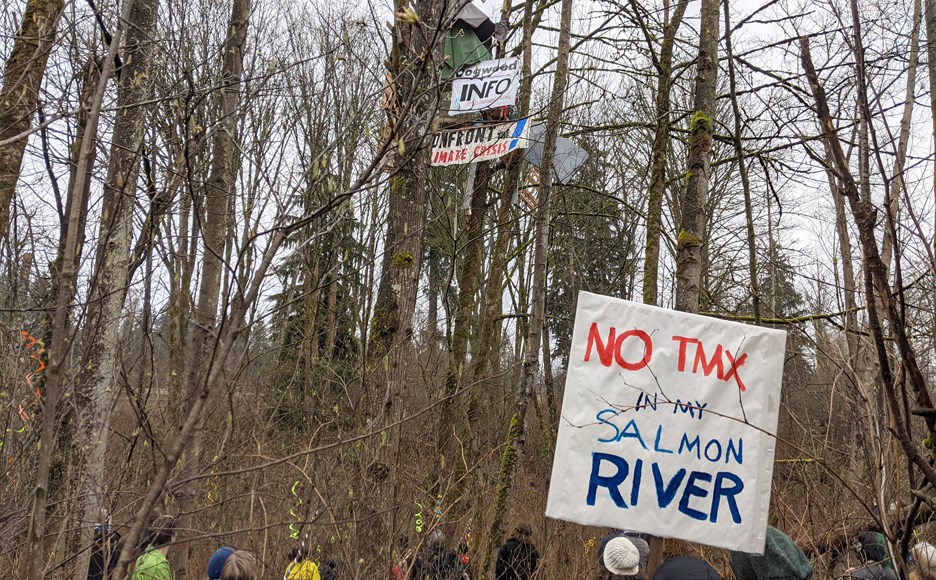A protester convicted of violating an injunction at Burnaby Trans Mountain pipeline locations should spend 60 days in jail, a Crown prosecutor told B.C. Supreme Court April 1.
When Supreme Court Justice Shelley Fitzpatrick asked the self-represented Errol Povah what he thought his sentence should be, he said, “I’d like zero days in jail. I know that’s not realistic.”
In convicting Povah on Feb. 14, Fitzpatrick said he appeared to have the support of others when he violated a court injunction; the injunction, issued by Justice Kenneth Affleck in 2018, prohibits people from entering within five metres of Trans Mountain worksites.
Trans Mountain is the pipeline company the federal government bought from Kinder Morgan in 2018 for $4.5 billion.
The offences happened at a worksite on Government Road, Crown prosecutor Ellen Leno said.
“This area has attracted the attention of anti-pipeline protests throughout 2021,” Leno said, calling Povah’s actions part of an orchestrated event
The judge said in February Povah was in a vehicle that “roared up to the site.”
She said he jumped from the vehicle and sprinted across the site. He then attempted to attach himself to a piece of machinery using a device known as a sleeping dragon. Protesters use the hard-to-remove devices to lock themselves into place.
The court heard Povah's purpose in attempting to lock himself to the equipment was to impede work at the site.
However, he didn’t quite securely attach himself and security staff were able to remove him after a scuffle, court heard.
The judge said people at the scene described Povah as aggressive, agitated, confrontational and threatening. And, she found that he knew of the 2018 court injunction.
Fitzpatrick asked Povah, a former Canadian navy member and retired BC Ferries worker, why he violated the injunction.
“I did it for the orcas primarily,” Povah said. “I strongly believe I did it because of the violation of Indigenous rights and title.”
Povah told the court Prime Minister Justin Trudeau’s government is “ramming the pipeline through” without prior and informed consent from Indigenous peoples.
“The hypocrisy I find is mindboggling,” Povah said.
He described himself as a lifelong activist, a word he said should not have the stigma attached to it that it does.
“We have our own very strong beliefs,” he said.
Povah called the court’s injunction process flawed, saying when opposition to projects becomes too much, companies run to the courts. He suggested a day will come when people will look back and “scratch their heads at how courts were used as tools of industry.”
The Crown lawyer said Povah has already been convicted of breaching the injunction. She said the June 2018 conviction resulted in 150 hours of work service.
Povah suggested he be given 100 hours of community work service this time around.
Fitzpatrick remain unmoved, noting Povah had already been sentenced to work service for the earlier injunction breach.
“That apparently had no effect,” she said.
Responded Povah, “I’m not convinced an amount of jail time would be of any effect either. I’m not trying to be a martyr.”
The judge will deliver her sentence decision on June 16.



